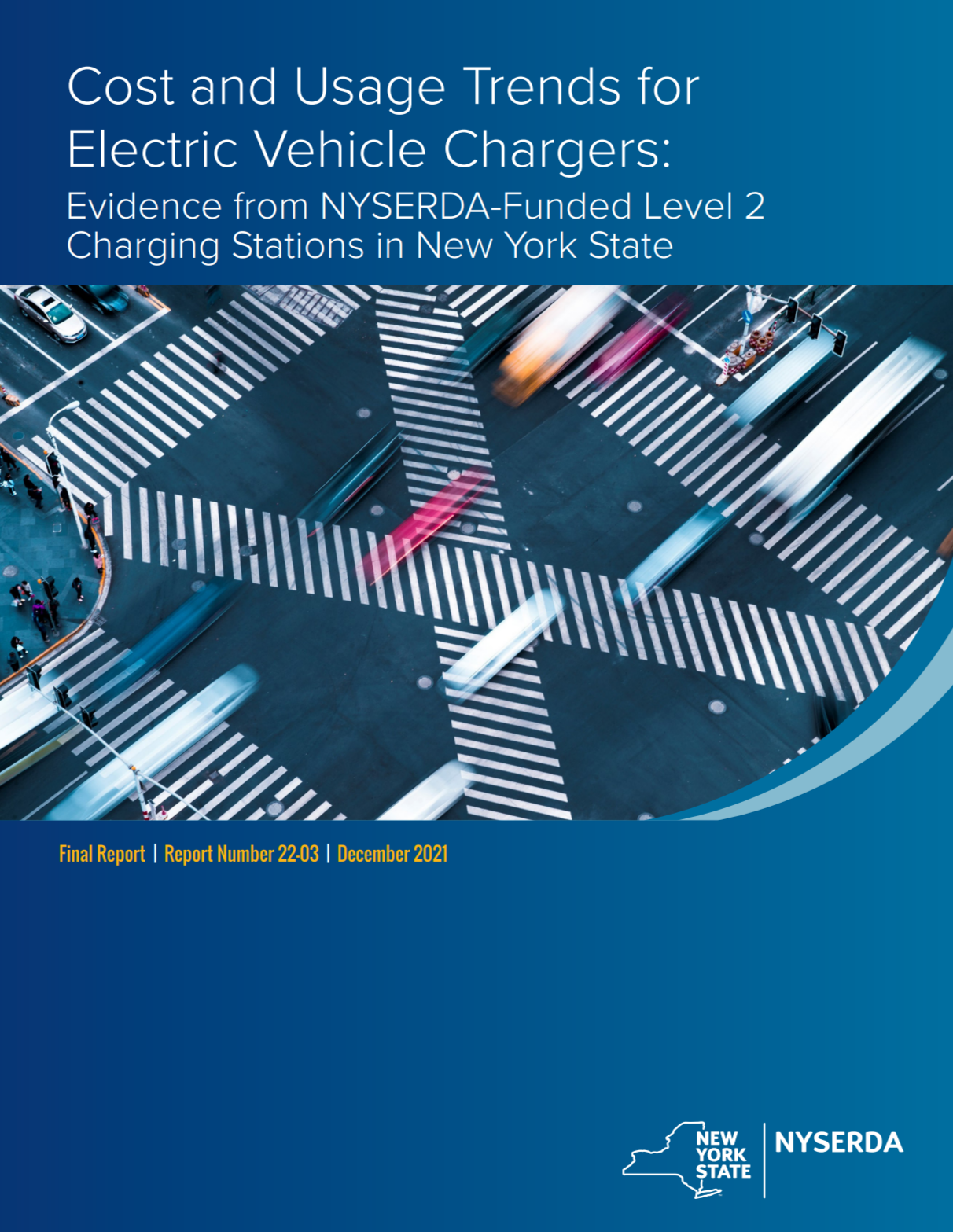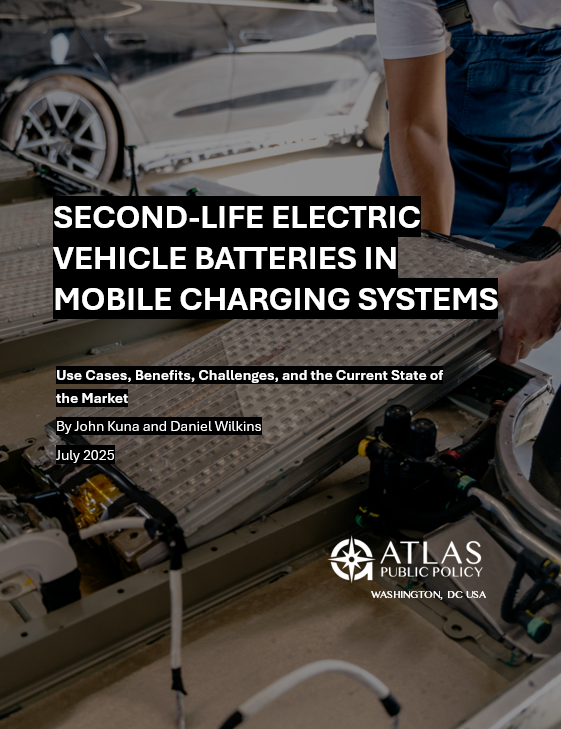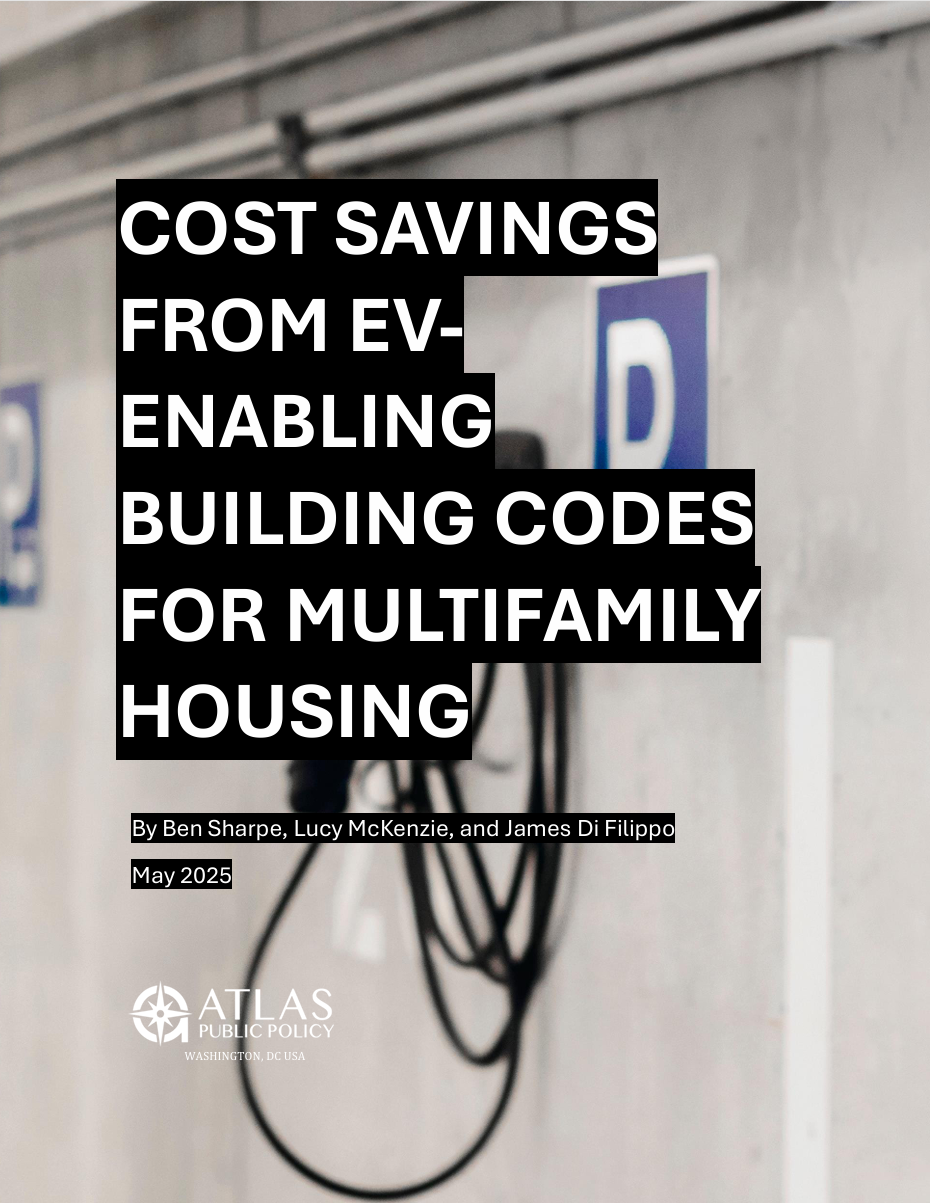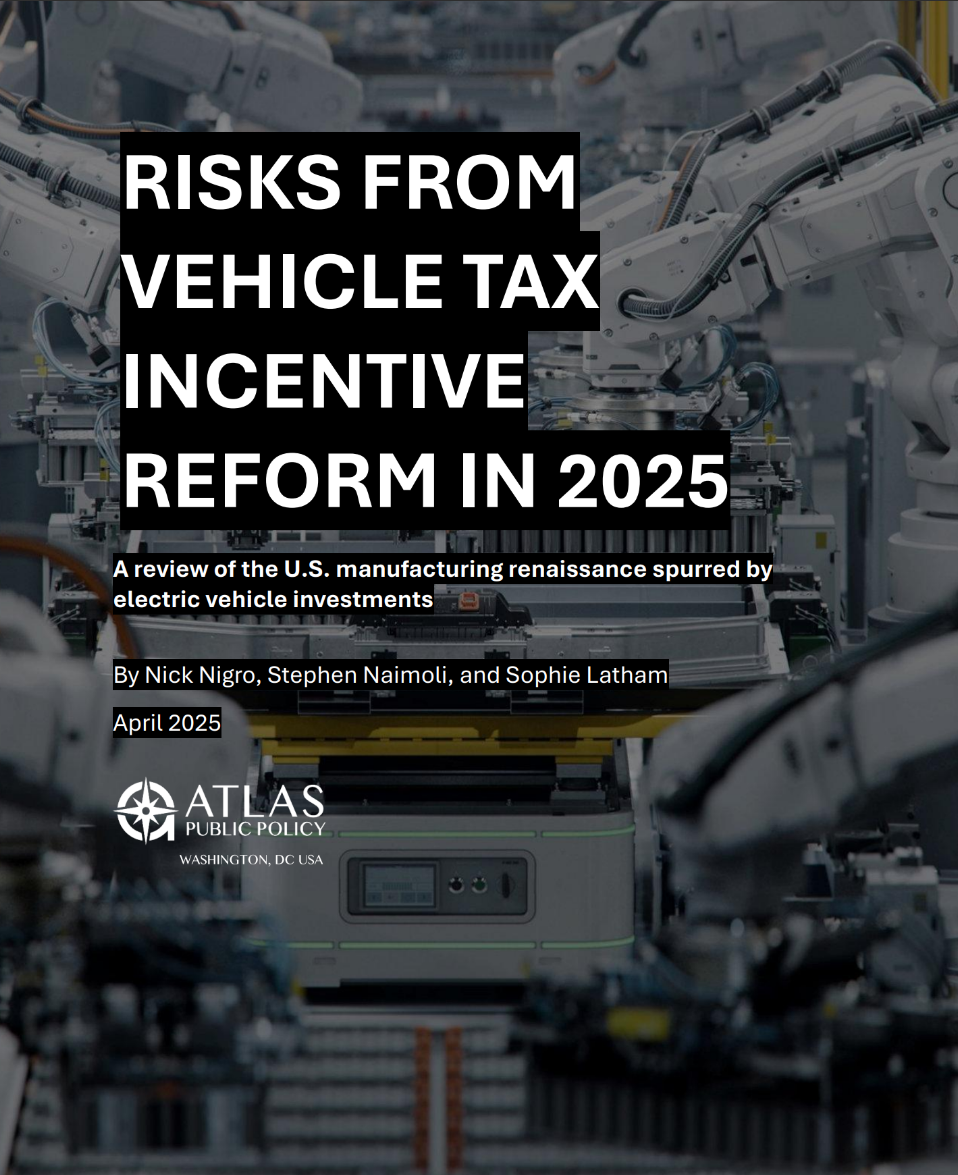This report analyzes cost and usage data at Level 2 chargers using data from stations funded by the Program Opportunity Notice (PON) 2301 demonstration project (2012–2016) and Charge Ready NY (2018–2021) in New York State.
Costs vary widely between installations depending on site-specific factors. Per-port average costs range from $8,774 to $6,921 between the earlier and later program. Both installation and equipment costs fell between programs. While decreases in equipment costs appear to be a function of real declines in price for charging stations, it is less clear whether observed reductions in installation costs reflect an overall trend in installation cost reductions or if substantial installation cost reductions are possible. However, it appears that more stringent subsidy caps can enforce some cost discipline for charging station installation.
The median charger delivered 1.5 kWh per day (on average) and served 0.14 sessions—or about one per week. However, chargers above the 90th percentile of usage were seven to eight times more productive than the median station and were responsible for about half of all charging activity. The factors contributing to charging station utilization are complex and much of the variation observed in the data remains unexplained. However, the stations with the most overall use are those with commuter-supporting usage patterns meaning that policymakers may find it productive to target program outreach toward locations where commuters can charge.
There is no evidence that congestion is a problem for charging stations in either program and large installations have (thus far) rarely been used to full capacity, a fact that policymakers should consider when deciding on project funding maximums and program design. However, charging station use has grown steadily over time and there is no evidence that the charging station landscape is saturated or that new stations are crowding out usage at existing locations.
So as more EVs come into service, stations should see more utilization.




